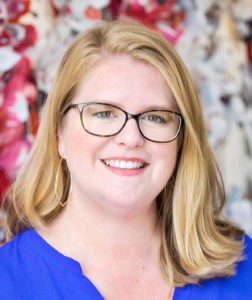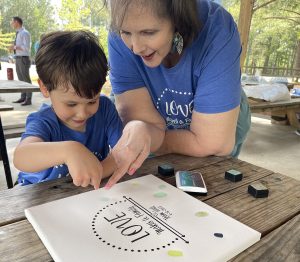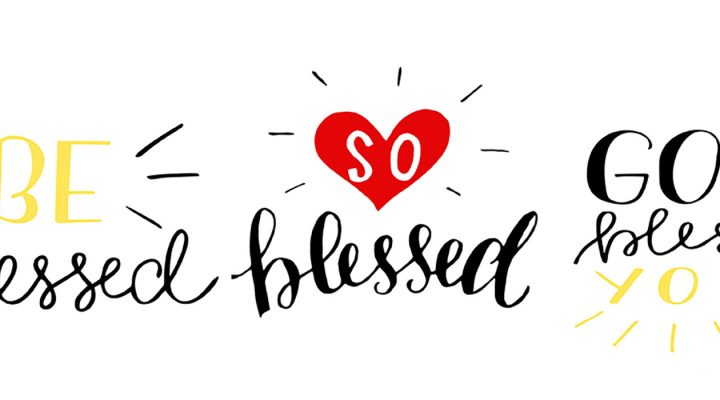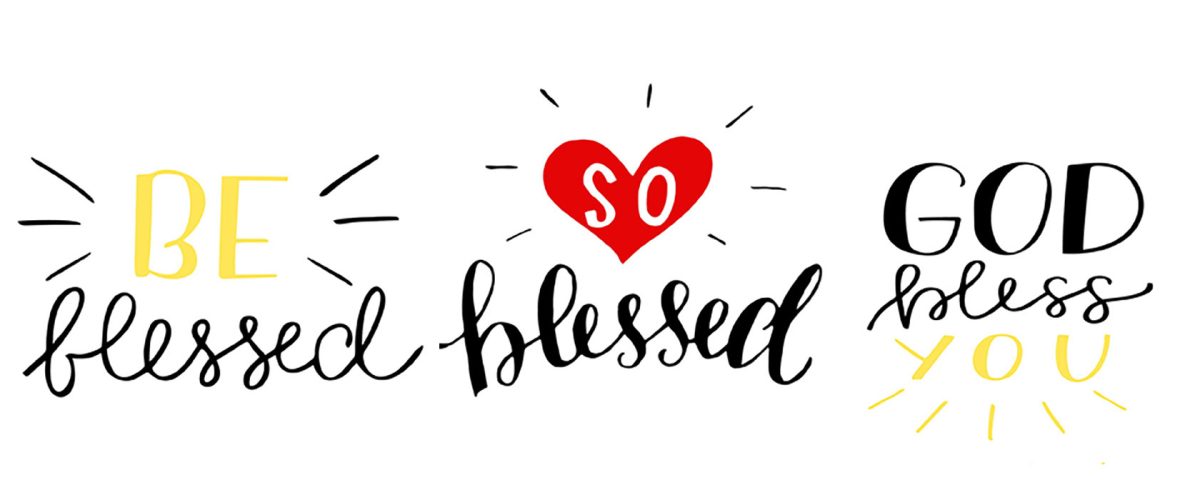“You are so blessed.”
I hear this statement sometimes, usually in places where my bandwidth for seeing the sacred is about gone. In the grocery store, when my four little goofballs are hanging off a cart or screaming, I don’t always think of blessedness. I don’t have time to tell the well-intentioned store clerk the real story I want to tell. So I smile and say, “You have no idea.”
I heard some advice that has helped when parenting in tough moments: Pause and look at your child’s tiny hands. The idea is to remember the child is little, still developing and learning what should be done. I find it a great way to reset. I look at their hands, specifically their fingerprints, and take a deep breath. I remember what I believe about blessing.

Erin Robinson Hall
I bristle at the word “blessed.” Why are we claiming which people are given extra from God and which ones are just forgotten? It just doesn’t hold up in my family’s story.
In November 2019, we brought our children home. My husband, our biological son and I made the decision to adopt from foster care. When we got the call asking if we would accept a sibling group, we thought, prayed and said yes. We told our church folks. They asked if we would want to have a kind of family dedication after the adoption, to formally name the blessing we were experiencing. That sounded beautiful, and I really looked forward to it.
In three days, our friends came over with their children and helped us prep the bedrooms and make room for these children we would embrace but did not yet know. I remember looking at our glass-paned back door and seeing it covered with gooey fingerprints. I thought, this is what it means to have a house full.
Our full house meant learning and unlearning. The night we picked up three children from a previous foster placement, I’m not sure what we expected. There were giggles and laughs. Some shocks, and some reassurances given to let them know they were welcome and safe.
Three-year-old G looked at me and asked “Are we gonna stay here forever?” I wrapped him in a snuggly blanket, hugged him, and said, “We love you, and you are home.”
We made it through that first night with almost no sleep. The next morning, a cool 40 degrees, we found ourselves running into Walmart for essentials. G had not one pair of pants in his empty duffel bag from the previous foster home. None of the kids had coats. I sprinted through Thanksgiving store displays that said “grateful” and “blessed” to grab clothes and I texted friends about any hand-me-downs they might share.
Soon, I learned clothes were the least of our concerns.
“We cannot trace our story without paying attention to the places where brokenness shaped us.”
Adopting from foster care means you step into a system that is complicated and broken. We saw some people doing their best, but cracks in a system hurt children. Even the beauty of adoption begins with loss. We cannot trace our story without paying attention to the places where brokenness shaped us.
What we thought we knew about trauma fell apart when we saw what it looks like in our living room.
Trauma looks like hypervigilance to everything around you, to make sure you can see if someone is coming to hurt you.
Trauma is the sound of screams from night terrors.
Trauma is paying attention to every turn taken on the drive to school, because if Mom drives a different way, you’re convinced you won’t be going home.
Trauma looks like crying until you are in a disassociated state because you walked by cigarette smoke and it triggered you.
Trauma looks like spending more time hiding under the kindergarten table than coloring at the table, because a substitute teacher brought terror and reminded you of loss.
Trauma looks like counting and hiding snacks because you know what it’s like not to have enough food.
Our family learned trauma-informed care, a collection of practices for grounding and emotional regulation. Wonderful therapists helped our children learn language about what happened to them, and practices for flourishing. Our road to adoption that should have been a few months went on for a couple of years. We held on to our practices and kept repeating what I promised G that first night: You are loved, and this is our home.
“We held on to our practices and kept repeating what I promised G that first night: You are loved, and this is our home.”
During that season, ministry life became difficult. My husband, a pastor, led through church conflict and sought discernment for moving forward. When you have walked your children through facing their “dragons” of trauma, you gain courage for facing injustice and toxic behavior disguised as church politics. What we thought we knew about church fell apart. We left that congregation, grieving the loss of ministry dreams and plans.
I realized there would be no family dedication moment in the sanctuary. I cried through many prayers, wondering what a blessing even means. We felt lost.
But we were not alone. Friends who know what it means to feel lost showed up in our lives. Most of them are not churchy and never would use the word “blessed.” But they listened. They texted and checked in and shared meals with us, loud children and all. They remind me of a song by Natalie Grant on repeat in our family: “This is what it means to be held. How it feels when the sacred is torn from your life. And you survive. This is what it is to be loved. And to know that the promise was when everything fell, we’d be held.
Blessing is naming what is true. What we know to be true is that we are named as beloved and held by God. That’s it.
 The adoption of our three children happened in the spring, on the first day of Easter. We gathered at a local park for cupcakes and a family blessing. Instead of a sanctuary, we had picnic tables. We invited our family and friends from so many different sections of our community to help us embody that sense of blessing. People were invited to participate in a fingerprint blessing. They left a fingerprint on the canvas, silently offering whatever felt like prayer to them.
The adoption of our three children happened in the spring, on the first day of Easter. We gathered at a local park for cupcakes and a family blessing. Instead of a sanctuary, we had picnic tables. We invited our family and friends from so many different sections of our community to help us embody that sense of blessing. People were invited to participate in a fingerprint blessing. They left a fingerprint on the canvas, silently offering whatever felt like prayer to them.
The canvas hangs above our kitchen table, reminding us of how we are named and held.
Erin Robinson Hall is a writer, podcaster, ministry leader, content curator and preacher. She and her husband, Jake, live with their young children in Macon, Ga. Find her at erinrobinsonhall.com, Glass Half Full Podcast, Three Minute Ministry Mentor.
Other articles in this series:
‘We’re so blessed!’ | Opinion by Mark Wingfield
Blessing is not about good fortune; it is akin to God’s love | Opinion by Ann Bell Worley
Original blessing, the #blessed hashtag, and what it really means to be blessed | Opinion by Andrew Daugherty
When being a ‘blessing’ comes with some baggage | Opinion by Amber Cantorna
Seeing mortality as a blessing | Opinion by Cynthia Astle
Blessed by life’s diversions | Opinion by Jeff Hampton


